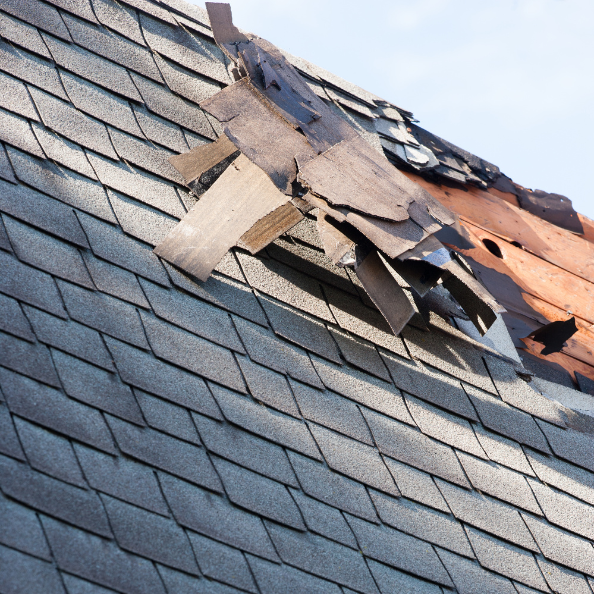Choosing the Right Roofing Contractor
Selecting the right roofing contractor is one of the most important decisions a homeowner can make. Your roof is your home’s first defense against the weather, and the quality of installation or repair directly affects its ability to protect you. A poorly installed roof can lead to leaks, mold, energy loss, and premature replacement. With so many contractors available, knowing how to evaluate them can help you avoid poor workmanship, costly repairs, and unnecessary stress.
The first step is to confirm licensing and insurance. In most states and cities, roofing contractors must carry specific licenses to operate legally. A license confirms they have met industry standards for training, safety, and quality. It also provides a level of accountability, since licensed contractors can face penalties or lose their credentials if they violate building codes. Insurance is equally important. A reputable contractor will have both general liability coverage and workers’ compensation. This protects you from being held financially responsible if a worker is injured on your property or if accidental damage occurs during the job. Without proper insurance, you could be on the hook for thousands of dollars, which is an avoidable and unnecessary risk.
Manufacturer certifications are another sign of quality. Some roofing material companies, such as leading shingle manufacturers, offer certification programs for contractors who demonstrate exceptional skill and product knowledge. Certified contractors are often able to offer longer material warranties than non-certified ones, sometimes extending coverage by decades. These certifications also mean the installer has been vetted and trained to use the materials correctly, reducing the likelihood of installation errors that could shorten the roof’s lifespan.
Local experience plays a significant role in choosing the right roofer. Roofing is not the same in every climate. In the Midwest, for example, roofs must withstand hail, strong winds, ice dams, and rapid temperature shifts. Contractors who have worked in the region for years know which materials perform best and how to install them to resist weather damage. They will also be familiar with local building codes, permit processes, and inspection requirements, helping your project run smoothly from start to finish without unnecessary delays.
When narrowing down your options, request detailed written estimates. A thorough estimate should break down the cost of materials, labor, permits, and any potential additional charges. This transparency allows you to compare bids fairly. Avoid choosing solely based on the lowest price. While saving money is tempting, low bids often mean cheaper materials or rushed labor. Over time, this can lead to leaks, poor ventilation, and early roof failure, costing far more in repairs than you saved upfront.
Warranties are another key factor. There are typically two types: manufacturer warranties that cover defects in roofing materials and workmanship warranties that cover installation errors. A trustworthy contractor will explain both types clearly and provide written documentation. Make sure you understand what each warranty includes and excludes, as well as how long the coverage lasts. A good warranty can mean the difference between paying out-of-pocket for a major repair and having it covered in full.
Researching reviews and testimonials is another valuable step. Look for consistent feedback across multiple sources like Google, the Better Business Bureau, and local Facebook community pages. Positive reviews should mention professionalism, punctuality, and problem-solving skills, while negative reviews can reveal recurring issues. Patterns in feedback are more important than one-off complaints or praises. If a company has consistently won local awards, that can also be a great indicator of their reputation with customers and, subsequently, the quality of their installations.
Be cautious of any contractor who requests a large deposit before starting work. While a small deposit is standard to secure materials and scheduling, asking for a substantial amount upfront can be a red flag. Reputable contractors often structure payments in phases tied to specific project milestones, such as after tear-off, after installation, and upon completion.
Clear documentation is critical. This includes the signed contract, the detailed estimate, proof of insurance, warranty certificates, and copies of any permits. A well-written contract will outline the start and completion dates, scope of work, materials to be used, payment schedule, and procedures for addressing unforeseen issues. Having everything in writing protects both you and the contractor from misunderstandings and ensures that expectations are aligned from day one.
Choosing a roofing contractor is about more than finding the lowest price; it is about finding the highest level of trust and skill.
By carefully vetting your roofer, you increase the chances of a smooth, successful project that will protect your home for decades. The effort you put into the selection process will pay off in quality craftsmanship, reliable warranties, and peace of mind knowing that your roof was installed or repaired by a true professional who takes pride in their work.
Blog Post Synopsis
Selecting the right roofing contractor is crucial to ensure your roof protects your home effectively and lasts for decades. A poor choice can lead to leaks, energy loss, and expensive repairs.
Key factors when choosing a roofer:
- ✅ Licensing & Insurance: Ensure the contractor is licensed and carries liability and workers’ compensation insurance to protect you from financial risk.
- 🏅 Manufacturer Certifications: Certified contractors offer better warranties and are trained to install materials correctly.
- 🌦️ Local Experience: Roofers familiar with your region’s weather and codes deliver more reliable, compliant work.
- 📝 Detailed Estimates: Transparent quotes allow fair comparisons—don’t just pick the lowest bid.
- 🛡️ Warranties: Understand both material and workmanship coverage; strong warranties protect against future costs.
- ⭐ Reputation & Reviews: Consistent positive feedback signals quality and professionalism.
- 💰 Reasonable Deposits: Large upfront payments are a red flag; reputable contractors use phased payment schedules.
- 📄 Clear Contracts: Written agreements covering scope, timelines, costs, insurance, and warranties protect both parties.
✅ Bottom line: Choosing a roofer is about trust and skill—not just price. Careful vetting leads to quality installation, solid warranties, and long-term peace of mind.









